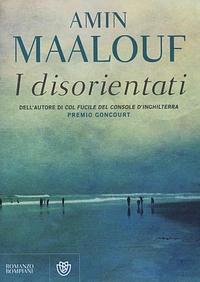Take a photo of a barcode or cover
emotional
lighthearted
reflective
sad
medium-paced
Plot or Character Driven:
Character
Strong character development:
Complicated
Loveable characters:
Yes
Diverse cast of characters:
Yes
Flaws of characters a main focus:
Complicated
First 50-60% of the book was so good and you feel the characters’ feelings, their dilemmas and struggles. After that it becomes kind of flat. I felt like there was a rush to finish the book. Ending was not satisfying at all. It leaves users with nothing.
slow-paced
Plot or Character Driven:
Character
Strong character development:
Complicated
Loveable characters:
No
Diverse cast of characters:
Complicated
Flaws of characters a main focus:
Complicated
emotional
inspiring
reflective
fast-paced
Food for thought. This novel is about current and interesting topics and it definitely resonated with me. I didn't like the ending though.
Would recommend it to everyone, I'm planning to read more of Amin Maaloufs work myself too.
Would recommend it to everyone, I'm planning to read more of Amin Maaloufs work myself too.
emotional
reflective
medium-paced
Plot or Character Driven:
Character
من النادر ان الواحد يقرا روايه بالبساطه دي تأثر فيه بالقوة دي ، رائعة !
adventurous
challenging
emotional
inspiring
sad
tense
fast-paced
This is not the kind of book I'd ever pick up for myself, and yet I found I was completely absorbed in its telling. I wanted to hear the truth about this circle of friends who fell apart. I wanted to see what it would be like when they all came back together.
I'm deeply unfamiliar with the history of the Levant, thanks American educational system, so I actually had no idea while reading when the book took place until near the very end, when the date is given for the friends' reunion (2000). Because certain things happened 20 years ago, 25 years ago, 30 years ago, I really struggled with the time periods throughout. That didn't get in the way of my enjoyment of the novel, it just made me realize my own ignorance, which in some ways feels like the point.
Probably the only thing that made me uncomfortable to read was that this book tries to rationalize an affair FAR too hard. Adam, our main character, makes a lot of claims about his love of two different women, and the third person POV sections try to reaffirm this same truth, and all that it did was remind me that this book was definitely written by a man, and that the two women in Adam's life are absolutely acting the way a man WISHES women would, rather than how any sane person might. And then we have Tania, the widow, who is also painted with an extremely harsh brush - and yet she has a point, in every argument, that Adam seems unwilling or unable to listen to. This book does acknowledge some feminist ideology, and that was appreciated. But its actual female characters are done a great disservice throughout.
I still had a very good time reading this book, even as I hit those few sections. I love the epistolary nature of it, the collections of letters, emails, journal entries, etc. The ending is all the more effective because of the book's unusual structure. I don't think it would have hit me nearly as hard if it had been a straightforwardly structured linear narrative.
I'll definitely be thinking about this book for a long time, and I'm glad I picked it up despite it not being my usual genre or subject matter.
I'm deeply unfamiliar with the history of the Levant, thanks American educational system, so I actually had no idea while reading when the book took place until near the very end, when the date is given for the friends' reunion (2000). Because certain things happened 20 years ago, 25 years ago, 30 years ago, I really struggled with the time periods throughout. That didn't get in the way of my enjoyment of the novel, it just made me realize my own ignorance, which in some ways feels like the point.
Probably the only thing that made me uncomfortable to read was that this book tries to rationalize an affair FAR too hard. Adam, our main character, makes a lot of claims about his love of two different women, and the third person POV sections try to reaffirm this same truth, and all that it did was remind me that this book was definitely written by a man, and that the two women in Adam's life are absolutely acting the way a man WISHES women would, rather than how any sane person might. And then we have Tania, the widow, who is also painted with an extremely harsh brush - and yet she has a point, in every argument, that Adam seems unwilling or unable to listen to. This book does acknowledge some feminist ideology, and that was appreciated. But its actual female characters are done a great disservice throughout.
I still had a very good time reading this book, even as I hit those few sections. I love the epistolary nature of it, the collections of letters, emails, journal entries, etc. The ending is all the more effective because of the book's unusual structure. I don't think it would have hit me nearly as hard if it had been a straightforwardly structured linear narrative.
I'll definitely be thinking about this book for a long time, and I'm glad I picked it up despite it not being my usual genre or subject matter.
Video review https://www.youtube.com/watch?v=Zobm-0QRSjo






